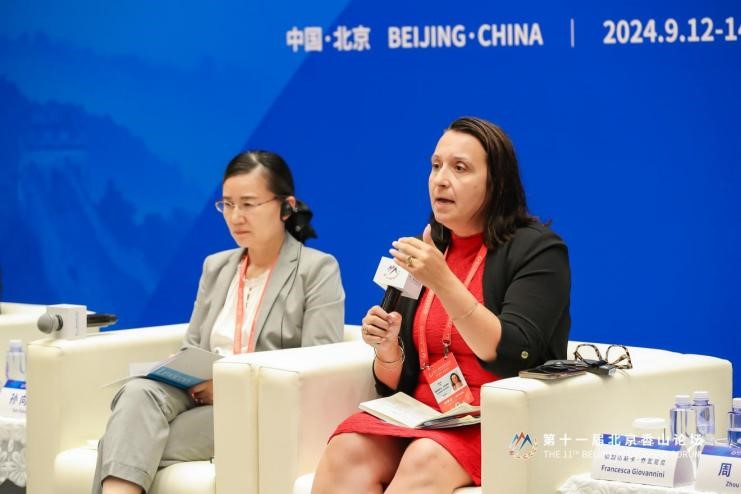
Nov 08, 2024
Francesca Giovannini is executive director of the Project on Managing the Atom (MTA) at the Harvard Kennedy School’s Belfer Center for Science & Internati
Li Yan, Director of President's Office, China Institutes of Contemporary International Relations
Sep 27, 2024
When a major country moves unilaterally to increase its own security, it triggers a greater sense of insecurity in others. The recent move by the United States to adjust its nuclear response strategy is having exactly that effect, along with a return of Cold War thinking.
Wu Chunsi, Senior Fellow and Director, Institute for International Strategic Studies at SIIS
Jun 16, 2022
The raging Russia-Ukraine conflict is a stark reminder of the urgency of effective management of weapons of mass destruction. The international community must come together to restart the long-stalled international negotiations over arms control and nuclear disarmament by fully utilizing the existing mechanisms and platforms and generating greater consensus and impetus among all stakeholders. A staunch supporter of the international arms control and nuclear disarmament regime, China adheres to its longstanding nuclear policy of maximum restraint and remains committed to the pursuit of a new path leading to a world of enduring peace and stability.
Jin Liangxiang, Senior Research Fellow, Shanghai Institute of Int'l Studies
Nov 12, 2021
If the United States is serious, it can begin by trying to establish basic trust through the removal of some sanctions. It can also push off to the future its demand to consider other issues beyond the JCPOA, which only complicate matters at this stage.
John Gong, Professor at University of International Business and Economics and China Forum Expert
Sep 21, 2021
AUKUS partnership’s nuclear submarine deal destabilizes the Indo-Pacific region and serves no one’s interest — least of all France, which was stabbed in the back. Will the vessels ever be delivered as promised? Washington couldn’t care less. It’s all about money and American jobs.
Richard Weitz, Senior Fellow, Hudson Institute
Apr 17, 2020
Although bilateral cooperation between China and the U.S. is sub-optimal at this moment, Beijing and Washington must not overlook other global challenges such as nuclear non-proliferation and arms control.

Jin Liangxiang, Senior Research Fellow, Shanghai Institute of Int'l Studies
Apr 23, 2018
Formal withdrawal will enhance the image of the U.S. as a rule-breaker amongst the international community.

Richard Weitz, Senior Fellow, Hudson Institute
Mar 19, 2018
The Trump administration’s recently released national security, national defense, and nuclear strategies make clear that China and Russia have become the pacing threat for U.S. national security managers. However, the NPR likely errs in stating that Chinese officials are “increasing nuclear threats.” Unlike Moscow and Washington, Beijing has a declared no-first-use doctrine.

Mel Gurtov, Professor Emeritus of Political Science, Portland State University
Mar 02, 2018
Has the U.S. position on how to deal with North Korea actually changed?